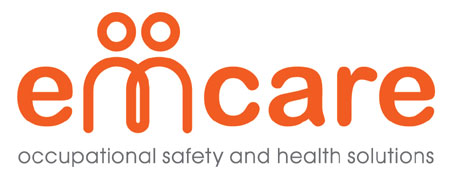Investing in Safe Mental Health First Aid (SMHFA) and Mental Health First Aid (MHFA) training for social work teams delivers measurable financial and cultural returns. Evidence shows that every £1 spent on mental health interventions can return nearly £5 in productivity, retention, and reduced sickness absence. For employers in the social work sector, where staff face uniquely high pressures and responsibilities, this investment is not optional — it is essential to sustain workforce wellbeing and ensure better outcomes for service users.
Understanding SMHFA & Mental Health First Aid Training
Mental Health First Aid (MHFA) is a training programme that equips people to recognise the early signs of mental health issues, provide initial support, and guide individuals towards professional help. It is designed for workplaces, schools, and communities to ensure early intervention and support.
Safe Mental Health First Aid (SMHFA) is a variation of this approach with a stronger emphasis on safety, safeguarding, and clear boundaries. It is especially suited to social work settings, where staff often deal with vulnerable individuals, trauma, and crisis situations.
These programmes do not replace professional treatment. Instead, they act as a vital first layer of awareness and support that prevents problems from escalating. For employers, the benefits go beyond compliance — they lead to healthier staff, reduced turnover, and stronger service delivery.
Why Social Work Teams Need MHFA and SMHFA
Social work is one of the most emotionally demanding professions in the UK. Teams often deal with individuals in crisis, manage safeguarding risks, and carry heavy caseloads. The nature of the work makes staff particularly vulnerable to stress, burnout, and secondary trauma.
MHFA and SMHFA training address these challenges by:
- Helping staff spot early signs of distress in themselves, colleagues, and service users.
- Reducing the stigma associated with talking about mental health.
- Equipping staff to respond calmly and effectively to crises.
- Promoting a culture of openness and support across teams.
- Strengthening staff resilience, morale, and retention.
The stakes are high: without investment in mental health training, organisations risk higher absenteeism, increased turnover, lower quality care, and reputational or legal consequences.
The Business Case: ROI from Mental Health Training
Employers often ask whether mental health training is worth the investment. Research consistently shows that the answer is yes.
- Financial Return: Studies suggest that for every £1 invested in mental health interventions, employers receive approximately £4.70 in return through improved productivity and reduced absence.
- Costs of Poor Mental Health: In the UK, mental ill health costs employers an estimated £33–£42 billion each year through absenteeism, presenteeism, and staff turnover.
- Workplace Absence: Stress, anxiety, and depression account for more than half of all work-related illness in the UK, leading to millions of lost working days annually.
When applied to social work, where pressures are higher than average, the potential for return is even greater. By reducing stress-related absences, improving staff wellbeing, and supporting retention, mental health training quickly pays for itself.
Direct Benefits for Employers
Reduced Absenteeism
Staff trained in MHFA are more likely to seek help early and support colleagues in doing the same. This proactive approach reduces the number of days lost to stress, depression, or anxiety, lowering sick pay costs and minimising disruption.
Improved Productivity
Presenteeism — where staff are at work but unable to perform at full capacity due to poor mental health — is a hidden but costly problem. Mental health training helps reduce presenteeism by giving staff the tools to manage stress and support one another.
Better Retention
Recruitment and training of new social workers is expensive and time-consuming. A supportive workplace culture built on mental health awareness improves morale and loyalty, reducing turnover rates.
Stronger Service Delivery
For social workers, the ability to recognise and respond to mental health issues in service users is critical. MHFA training enhances staff skills in this area, leading to earlier interventions, fewer crises, and better outcomes for vulnerable individuals.
Reduced Risk and Liability
Employers have a duty of care to staff and clients. Providing mental health training helps demonstrate compliance with regulations and reduces the risk of legal claims or reputational damage.
Special Importance for Social Work Employers
While mental health training benefits all workplaces, social work teams have particular reasons to prioritise it:
- Exposure to Trauma: Staff regularly work with individuals experiencing severe mental health challenges, abuse, or crisis situations.
- High Emotional Burden: Long hours, caseload pressures, and safeguarding responsibilities can lead to burnout.
- Interagency Working: Social workers collaborate with health professionals, police, and courts. Effective communication and crisis management are vital.
- Retention Challenges: Recruitment and retention are ongoing issues in the sector. A supportive workplace culture is a proven factor in keeping staff engaged.
In this environment, MHFA and SMHFA training are more than optional extras — they are safeguards for both staff and service users.
Best Practices for Maximising ROI
Choose the Right Training
Select accredited, sector-relevant courses that reflect the realities of social work practice. General courses may miss the complexities of safeguarding and interagency working.
Integrate Training into Culture
Mental health first aid must be part of a wider wellbeing strategy. Support from leadership, regular discussions about wellbeing, and policies that encourage openness are essential.
Measure Outcomes
Track absenteeism, staff turnover, and staff wellbeing before and after training. Monitoring results allows employers to demonstrate return on investment and adapt strategies.
Provide Ongoing Support
One-off training is not enough. Refresher courses, peer networks, and continued professional development ensure skills remain current and effective.
Support Managers
Equip line managers with additional training to handle mental health conversations sensitively and confidently. Managers often set the tone for team culture.
How Emcare Helps Employers Capture ROI
At Emcare, we understand the unique challenges faced by social work teams. Our mental health training solutions are designed to deliver tangible returns for employers.
- Tailored Mental Health Courses: Our mental health courses are customised to reflect the pressures and responsibilities of social work, with practical case studies and scenarios.
- Flexible Delivery: We offer in-person, online, and blended training options to reduce disruption and make courses accessible to all staff.
- Simulation-Based Learning: Role-plays and mock crisis scenarios ensure that training translates into real-world skills.
- Ongoing CPD and Support: Emcare supports employers with refresher courses and continuous development to sustain improvements over time.
- Workplace Integration: We help organisations embed mental health awareness into policies and supervision structures, ensuring training delivers lasting cultural change.
Practical Steps to Calculate ROI in Your Organisation
Employers can calculate their potential return by following a simple process:
- Set Baseline Metrics: Record current rates of absenteeism, turnover, and wellbeing survey scores.
- Calculate Costs: Add up training fees, staff time, and any additional support measures.
- Estimate Gains: Model reductions in sick days, turnover costs, and productivity losses based on evidence from other organisations.
- Track Results: Compare before-and-after data to demonstrate return.
Even small improvements — such as reducing sick leave by 10% or turnover by a few percentage points — can cover training costs and generate significant savings.
Long-Term Benefits Beyond Finance
The ROI of mental health training extends beyond financial savings. Long-term benefits include:
- A resilient, motivated workforce.
- A stronger reputation as an employer of choice.
- Improved compliance with health and safety standards.
- Better outcomes for service users, reflecting directly on organisational success.
For social work employers, these benefits can be the difference between struggling to retain staff and thriving as a sustainable, supportive workplace.
Conclusion
Safe Mental Health First Aid and Mental Health First Aid training are not just about meeting compliance requirements; they are sound investments that pay off in staff wellbeing, retention, productivity, and quality of service. For social work teams, the return on investment is particularly strong due to the unique pressures of the profession.
If you are ready to strengthen your team, reduce costs, and improve outcomes through mental health training, contact Emcare. For more information on our programmes, see our range of mental health courses.


